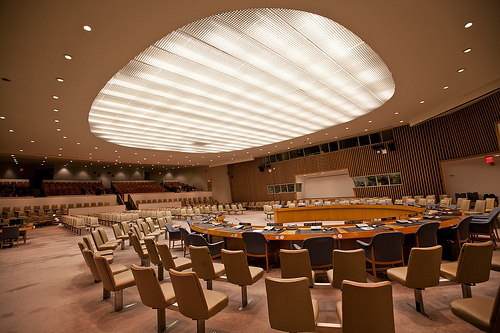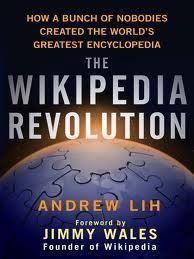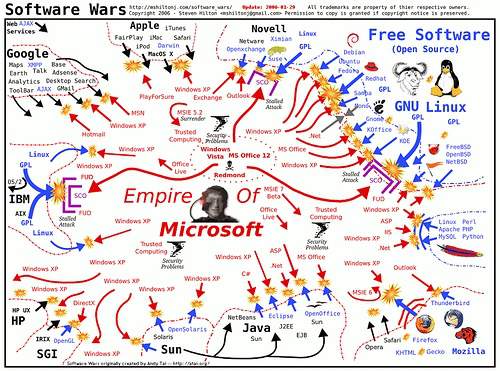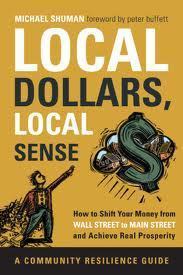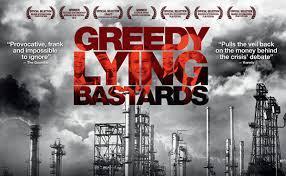Stuart Jeanne Bramhall's Blog: The Most Revolutionary Act , page 1367
March 17, 2014
Blowing the Whistle on Homeland Security
Another Whistleblower Fights Back
Despite all the public support the Edward Snowden case has generated, the majority of whistleblowers suffer in silence. Below is an mind blowing interview with former US Customs inspector Julia Davis, who was declared a domestic terrorist by the Department of Homeland Security for following established protocol in reporting a potential security threat. In this case, the threat concerned border crossings of 25 individuals with known links to terrorist groups. As Davis indicates, she never dreamed of becoming a whistleblower – she was merely doing her job.
When she inadvertently exposed corrupt practices in the intelligence community, DHS retaliated by charging her with domestic terrorism. Although she was imprisoned twice, though she was ultimately exonerated of all charges.
DHS later justified the domestic terrorism charge on the basis she supposedly made derogatory statements about DHS. Davis tells a different story. She asserts the label of “domestic terrorist” is a ploy used against prospective whistleblowers because the Patriot Act denies terrorists important Constitutional protections.
She has come to the conclusion that the main function of DHS isn’t to protect Americans from terrorism but to harass dissidents and whistleblowers.
Davis has helped produce a documentary about her ordeal called Top Priority
Among other projects, she is undertaking an independent investigation of the systematic harassment against her husband and one of her supporters – both have died under mysterious circumstances.
photo credit: U.S. Army Corps of Engineers Los Angeles District via photopin cc


March 16, 2014
Typical US Hypocrisy Over Russian Veto
US Veto History Shows Flagrant Disregard for International Law
The western media is roundly condemning Russia for vetoing a Security Council resolution condemning tomorrow’s referendum on Crimean self-determination as illegal under international law. The US, as usual, is being extremely selective in their support for international law. Their own veto history reveals that they have vetoed 41 resolutions demanding that Israel respect international law in occupied Palestine.
According Samantha Power, US ambassador to the UN, “Russia has used its veto as an accomplice to unlawful military incursion.”
How ironic. Substitute “US” for “Russia,” and you could be describing US behavior as regards the Israeli occupation of Palestine.
The 41 US vetoes include numerous resolutions condemning the construction of Israeli settlements in occupied Palestine, which are illegal under the Fourth Geneva Convention. The Obama administration last blocked Security Council efforts to force Israel to end settlement construction in February 18, 2011. You have to question the President’s sincerity in the current Middle East peace process. For peace negotiations to be fair, surely they must start with an absolute requirement that Israel abide by international law.
Other resolutions condemn Israeli for massive human rights violations against Palestinian civilians, their illegal war of aggression against Lebanon and Gaza, and their illegal expropriation of land in the West Bank, the Golan Heights and East Jerusalem. The US also vetoed a call for the UN to investigate Israel’s role in the murder of UN Food Program workers and countless Palestinian civilians
Any of the five permanent members of the Security Council (US, UK, Britain, France, Russia, China) have the power to veto a Security Council resolution. There have been 264 vetoes of Security Council resolutions. Approximately half were exercised by the Soviets prior to 1965, in most cases to oppose the admission of new pro-Western states to the UN.
Since 1972, the US has vetoed more Security Council resolutions than any other permanent member. In addition to vetoing resolutions on Palestine, it has vetoed fourteen resolutions condemning South Africa’s apartheid regime, one each condemning illegal US military aggression against Nicaragua and Panama and one condemning the illegal British war in the Falklands.
photo credit: jdlasica via photopin cc
Originally published in Veterans Today


March 15, 2014
The Mayor Who Said No to the Feds
The Armed ATF Raid That Didn’t Happen
Few Americans have heard of Wes Uhlman, Seattle’s mayor between 1969 and 1977. According to his official biography, his main claim to fame was being the youngest Washington State legislator (at 23) and youngest Seattle major (at 34) ever elected.
Ward Churchill mentions Uhlman in his 1990 Cointelpro Papers. At the time, Uhlman declined to identify the federal agency he crossed swords with. Churchill misidentifies it as the FBI. In 2005 Uhlman disclosed, in an interview with the Seattle Civil Rights and Labor History Project, that the federal agency he confronted to was the Agency for Tobacco and Firearms. The ATF was the main agency responsible for the 1993 Waco massacre. In February 1970, they tried to strong arm Uhlman to agree to an armed raid on the headquarters of the Seattle Black Panther Party.
This was approximately three months after the December 1969 FBI/police raids on the apartments of Chicago Black Panther leader Fred Hampton and Los Angeles Black Panther leader Geronimo Pratt. In Chicago a fourteen man team armed with submachine guns raided Hampton’s apartment at four a.m. on December 3rd. They murdered Hampton and Peoria Black Panther leader Mark Clark in their sleep.
Three days later a forty member Los Angeles SWAT team with 100 back-up officers staged a similar five a.m. raid on Pratt’s apartment. Pratt, who by chance was sleeping on the floor, miraculously survived. None of the LA Panthers, who defended themselves for four hours until the press and public arrived, were killed. Six were injured. All the surviving Panthers, in both Chicago and Los Angeles, were arrested for “attacking the police.”
Two weeks later Pratt was framed for a December 1968 murder he didn’t commit. The FBI knew he was innocent from wiretapping logs (which they concealed from the defense) placing him 350 miles from the murder scene. Pratt’s conviction was overturned in 1997. Following his release, he emigrated to Tanzania, where he died on June 3, 2011.
Uhlman Threatens to Arrest the ATF
In his interview with the Civil Rights and Labor History Project, Uhlman reveals that an ATF agent contacted him in late 1969, only months after he took office. The supposed justification for raiding Seattle’s Black Panther headquarters was that they were stockpiling illegal weapons. Uhlman opposed the ATF plan. As he states in the interview, he feared for the safety of a police undercover agent who had infiltrated the Seattle Panthers. The informant had assured him the Panther’s weapons were legal.
The ATF agent, infuriated when Uhlman refused to go along with the raid, threatened to carry it out without the city’s consent. In response, Uhlman threatened to encircle the Panther headquarters with cops and arrest any ATF agents who broke through police lines.
No Gestapo-type Raids in Seattle
The ATF leaked the outcome of their meeting outcome to the press, hoping to embarrass Uhlman as a “sympathizer of militants.” In a Seattle Post Intelligencer interview, Uhlman made reference to the FBI raid on Fred Hampton’s apartment. He stated he wanted no part of the “trend of attacks” on the Black Panthers.
“We are not going to have any 1932 Gestapo-type raids against anyone.” Adding that the Seattle Black Panthers only had a handful of members, he pointed out that numerous young blacks were “enthralled” by the group’s message. “If you give them a cause, they can make political hay out of it, and the kids will look on them like Robin Hoods. Then you wind up with 900 Panthers.”
In the aftermath of Uhlman’s controversial stand, he received letters from all over the US. Many attacked the mayor for his decision. Bloggers who are visited by intelligence trolls will recognize the distinctive turn of phrase, especially in the third:
“When idiot public officials cast their lot with proven communist agitators and anti-american (sic) bastards as the BLACK PANTHERS then it is time to IMPEACH such public sons of bitches.”
“I don’t see why the federal agency had to ask a jerk like you whether they could stage a raid on the black panthers. (sic). This organization is downright rotten, but it takes a rotten jerk to know a rotten organization. I hope one nite (sic) one of your soul brothers slits your throat.”
“Uhlman, you stupid ass, you are just as bad as the people, who are making such an issue of the two panthers who were killed in Chicago.”
An equal number of letters applauded Uhlman’s decision for upholding the Bill of Rights protections against warrantless search and seizure:
“You have GUTS—and even more…it would appear you do support the TRUE American spirit and the Constitution of this country. Let’s keep the principle…MEN ARE CREATED EQUAL!”
“As a fifty year old veteran of WWII [with] twenty-one years active military service allow me to extend heartfelt gratitude and congratulations in your brave decision to put the Bill of Rights, for which I have served so long, into effect.”
“We need more like you. I don’t necessarily agree with the Panthers, but the tactics of the Police, et al, frightens me more.”
Despite the controversy, Uhlman won his campaign for re-election in 1973. He retired from politics in 1978 to focus on his legal practice.
A great pity, as Seattle and Washington State lost a true statesman. No current mayors have the testicularity to protect their constituents against flagrant Bill of Rights violations by the Obama administration and US intelligence. At least they didn’t in November 2011, when they colluded with the FBI and Office of Homeland Security in orchestrating a brutal crackdown on Occupy protests.


March 14, 2014
The CEO Who Chained Himself to a Bridge
 photo credit: http://news.bbc.co.uk/2/hi/business/2941073.stm
photo credit: http://news.bbc.co.uk/2/hi/business/2941073.stm
His name is Petter Stordalen, and he’s a billionaire Norwegian property developer and the chief executive of Choice Hotels. In 2002, he chained himself to a bridge in Seascale England, demanding that the Sellafield nuclear reprocessing plant be shut down. I try to imagine Bill Gates chaining himself to something. Somehow I can’t quite picture it.
Stordalen is one of numerous Norwegian business executives and political leaders fighting for more than a decade to close Sellafield. Why does Norway want the British nuclear reprocessing plant shut down? Studies show that air and water currents carry Sellafield’s accidental and “operational” discharges to the west coast of Norway. The latter would also bear the brunt of a major accident, which, owing to the plant’s abysmal safety record, looked increasingly likely in 2002.
Including, but not limited to
between 1950-2000, 21 serious incidents or accidents involving offsite radiation release. This includes the Windscale Pile disaster, when a large heap of radioactive waste that caught fire in 1956
a 1999 citation for falsifying quality assurance data between 1996-1999
in 2003 a study commissioned by the Minister of Health revealing an increased incidence of childhood leukemia and non-Hodkins lymphoma in local residents
in 2005 a plutonium leak that went undetected for three months
in 2010 three accidental releases, with a fourth in early 2011, that were concealed from the public until a whistleblower leaked the documents to the Guardian
Why Reprocessing Plants Are Especially Dangerous
Sellafield first started up as a nuclear power station in the mid-fifties. Its mixed oxide (MOX) processing plant was built in 1996 and went on-line in 2001. Its role as a reprocessing plant means it accepts nuclear waste (spent nuclear fuel rods) from all over the world and reprocesses them for reuse. First plutonium and uranium must be separated from other fission products. One byproduct, a mixture of plutonium and uranium known as MOX, is used in thermal and fast breeder reactors. Sellafied’s reprocessing role also means that it accumulates massive amounts of “highly active liquor” (HAL), which requires constant cooling to prevent it from exploding.
Even CEOs Have Children
Few outside Britain and Norway have ever heard of Sellafield, much less the Neptune Network, an organization of Norwegian business executives turned environmental activists. Under the leadership of their executive director, long time businessman Frank-Hugo Storelv, the group has played a vital role in recruiting other Norwegian business leaders to lend their support to Norway’s antinuclear and anti-toxics campaign. In the video below, Storelv explains the urgent need for companies to operate more sustainably and be seen as good environmental citizens.
Like Petter Stordalen, Storev and other business executives in the Neptune Network were arrested numerous times for committing civil disobedience, both at Sellafield and numerous contaminated sites in Norway. In April 2011 he and four other members of the Neptune Network were arrested (under Britain’s anti-terrorism law) outside the gates of Sellafield for blocking a railroad shipment of new nuclear waste.
Victory for the Neptune Network
The MOX reprocessor at Sellafield closed August 3, 2011, after Japan (as a direct result of Fukushima) announced they would cease buying MOX for use in their reactors. The British government responded by proposing to build a new MOX plant at Sellafield, which would produce fuels for use in more modern reactors. In the face of massive public opposition, Cameron’s coalition government backtracked and committed to decommission and close Sellafield by 2018.
What’s Wrong With American CEOs?
So what’s the major difference between American and Norwegian CEOs? Why is it so hard to imagine Bill Gates, Warren Buffett, the Koch Brothers, George Soros (or any of our elected representatives, for that matter) chaining themselves to a bridge? They have children and grandchildren, just like Norwegian business executives. What’s more they all (presumably) have the educational background to understand that massive wealth won’t protect their offspring from the devastating health consequences of radiation poisoning.
In addition to the hundreds of thousands of cancer deaths and deformed babies stemming from nuclear accidents, leaks and “operational” releases, we still have no safe method of storing and/or disposing of the mountains of radioactive waste we have already created. Surely they know all this, right?
Originally published in Dissident Voice


March 13, 2014
The Worker Revolution in Cleveland
In 2008, the Cleveland Foundation approached Democracy Collaborative co-founders Gar Alperovitz* and Ted Howard* about revitalizing Cleveland’s decaying inner city. With the help of the Cleveland Clinic, University Hospitals, Case Western Reserve University, and Cleveland’s municipal government, they formed Evergreen Cooperatives (EC)
EC is a network of for-profit, employee-owned, green businesses. Network-based worker cooperatives have several advantages over independent worker cooperatives. In addition to their ability to attract funding from foundations, philanthropists and investors, they are more likely to enhance buy-in from “anchor” institutions. “Anchor” institutions are large businesses, such as hospitals, universities and hotels, that are permanently linked to the community.
Belonging to a network also makes it easier for worker cooperatives to resist pressure to cut corners (in competing with investor-owned companies) on environmental and work safety standards.
Creating Jobs and Revitalizing Cleveland’s inner city
EC’s goal is to create ten living wage, environmentally sustainable jobs in six low-income neighborhoods (43,000 residents with a median household income below $18,500). Each worker-owner purchases a $3,000 stake in the cooperative, with wages adjusted to allow a 50% payroll deduction until the buy-in is paid off.
They have create three so far and plan to create many more:
Evergreen Cooperative Laundry – serves Cleveland University, as well as Cleveland hospitals, hotels and other “anchor” institutions.
Evergreen Snergy Solutions – designs, installs, and develops PV solar panel arrays for institutional, governmental, and commercial markets.
Green City Growers – produces leafy greens in a 3.5 acre hydroponic greenhouse (America’s largest urban greenhouse) for Cleveland’s “anchor” institutions, as well as local hotels, supermarkets and restaurants. It sells sustainably grown produce at the same price as factory farmed vegetables imported from other states and countries. Yet because it’s produced locally it has a 7 day longer shelf life.
Atlanta, Washington DC, Pittsburgh (Amarillo) Texas are launching similar non-profit schemes to use worker cooperatives to create jobs in low income neighborhoods.
It’s extremely gratifying to learn that neighborhoods and communities are finding real life solutions for income inequality and the extreme economic distress in our marginalized communities. Imagine if this stuff were headline news, instead of the idiotic garbage John Kerry spouts about Ukraine.
*Gar Alpervitz is an historian, political economist, activist and author of The Next American Revolution and What Then Must We Do.
*Ted Howard is a social entrepreneur, author, and co-founder and executive director of the Democracy Collaborative.


March 12, 2014
Open Source: Reclaiming the Commons
The Wikipedia Revolution
By Andrew Lih
(Aurun Press Ltd 2009)
Lih’s Wilkipedia Revolution stands as a testament to the unsung heroes of the Open Source (OS) movement. From the outset, there has been a split between entrepreneurs like Bill Gates and Steve Jobs, who have viewed the Internet as an opportunity to become enormously rich, and true visionaries like Jimmy Wales, who see it as a medium of social change with the potential to improve the lives of billions of people.
In Lih’s view, Wikipedia would never have been possible without the freely shared knowledge and software of the Open Source movement. He makes this clear by skillfully interweaving the personal biography of Jimmy Wales with the history of the Internet, the World Wide Web and the OS movement itself.
Hacker Ethics and the Open Source Movement
Wales, who has a master’s degree in finance, had a first career selling derivatives for Chicago Options Associates. In 1996, he used his programming and hacking skills to start a dot com in with Tim Shell, who he met through an on-line philosophy mailing list. At the time, Wales was a big fan of Ayn Rand’s objectivist philosophy, i.e. the belief in obtaining objective knowledge form measurement. This would ultimately inspire his faith in using measurement by the masses to create an on-line reference work.
Wales and Shell called their dot com Bitter Old Men in Suits (BOMIS). Their first project was a Yahoo-style directory for the city of Chicago. This was around the time (1996) that two Sun Microsystems engineers started DMOZ (directorymozilla.org), the first Internet-wide search engine. They did so with the explicit intent of employing volunteer labor and freely distributing it to the public, under the principle of “Copyleft” or General Public License that underpinned the free software movement. Later renamed the Open Source movement, this was started in 1985 by MIT hacker Richard Stallman, helped by an extensive on-line network of hackers.
The hacker community has a very strong ethic that it’s okay to hack into computers and steal software code provided you use it to improve and share the software. Refusing to share what you have stolen and improved on for personal profit (like Bill Gates) is considered totally unethical. Making your software code public, instead of keeping it secret, allows thousands of programmers to improve on it. This why free downloadable Open Source programs always have fewer operating and security glitches than Microsoft and other proprietary software.
Netscape, Linux and Wikiwiki Web
DMOZ subsequently morphed into Netscape, which dropped out of public view after Microsoft pirated and monopolized the concept, by loading their own Microsoft Explorer on every new computer. Netscape would ultimately be reborn as Mozilla Firefox, a free Open Source browser many users prefer for its greater safety and reliability. Because the code that runs it is freely and publicly available, it undergoes continuous quality improvement by the thousands of programmers who use it.
Other significant innovations that made Wikipedia possible were the creation of the World Wide Web in 1992 by Tim Berners-Lee and the creation of Wikiwiki Web by Ward Cunningham in 1994. Prior to 1992, there were a half dozen different protocols (including Gopher and WAIS) that had to be laboriously typed in to access documents posted on the Internet. Berners-Lee created a Uniform Resource Locator (URL), using a Hypertext Transfer Protocol (http) for finding on-line documents. Cunningham’s Wiki software enabled any user anywhere to edit any website without having specialized software or knowledge of programming or html (the language used to construct a web page).
The Birth of Wikipedia
In 2000, Y2K enthusiast Larry Sanger joined BOMIS, bringing a large number of followers from his on-line Y2K digest. The Y2K movement was an informal network of programmers and community activists formed to rectify the widespread use, in early computers, of two digit dates. There was legitimate concern that computers built before 1990 would be unable to distinguish whether “00″ represented the year 1900 or the year 2000 – and crash. Disaster was averted, thanks to the frantic rewriting (in 1998 and 1999) of millions of lines of code in government and corporate computers.
After Sanger joined BOMIS, one of their first projects was an on-line encyclopedia-style “blog” called Nupedia. Wales, Shell and Sanger drew in friends and on-line acquaintances to help with drafting and editing articles.
Wiki Protocol
The initial process of editing successive on-line drafts was extremely slow and cumbersome. BOMIS’s discovery of Cunningham’s Wiki protocol changed all this, enabling first hundreds, then thousands and eventually hundreds of thousands of computer users anywhere to post and edit articles Wales, Shell and Sanger registered Wikipedia Foundation as a non-profit organization in January 2001 The only rules were that Wikipedia had to be freely accessible to the public, have a Neutral Point of View (NPOV), and only describe existing research (original research is forbidden).
In the beginning detractors predicted that allowing thousands of strangers to post and edit articles would lead to total anarchy. According to Lih, order is maintained by hundreds of volunteer administrators and System Operators who are passionate about the concept of maintaining Wikipedia as a free and open encyclopedia.
Other critics periodically express concern about the CIA and various public officials rewriting Wikipedia entries to coincide with their political interests.


March 11, 2014
Open Source and Sustainability
As strange as it may sound, switching to Open Source operating systems and software can save a lot more carbon emissions than changing your lightbulbs.
I myself have switched to Firefox (instead of Microsoft Explorer) and Open Office (instead of Microscoft Word) and plan to download Linux soon to replace Windows. As a community organizer for 30+ years, Microsoft has been the bane of my existence. Most of the activists I work with use MS Word (and before that MS Works) to create documents. Predictably Microsoft has come out with a new version of Word that is unreadable by older versions. Clearly this is a calculated maneuver to force customers to continually purchase new upgrades.
Opening Pesky Docx Files
This time, however, I followed the advice of a fellow Green Party member and downloaded Open Office, provided free by Sun Microsystems Open Source software. Thanks to the Open Source movement, every time Microsoft comes out with a new word processing program, Open Office offers upgrades to translate the new program to either Open Office or an older version of Word. Not only does it open those pesky docx files, but it creates spreadsheets and slideshows and allows you to save graphics as either PDF or JPG files. It probably does lots of other things I haven’t discovered yet.
The other great thing about Open Office is that, like other Open Source software, it runs faster than Microsoft programs, crashes less and is less much likely to have security problems. This is because Sun Microsystems makes Open Office code freely available for other programmers to improve and build on. Computers aren’t like soup. By involving more people in creating code, you make it far more likely someone will find all the bugs and security problems.
Download Open Office Free at https://www.openoffice.org/
New Zealand residents have their own Open Office site: http://www.openoffice.org.nz/
How Open Source Reduces Carbon Emissions
So, people ask me, how does this reduce carbon emissions? There are obviously small energy savings (related to DVD production, packaging, transportation, etc) when an individual downloads software instead of buying it off the shelf. However the big emissions savings occur when large companies that maintain vast amounts of data switch to Open Source. Recently the Bank of New Zealand vastly reduced their energy costs and carbon emissions by converting their front end systems to Open Source.
They save money and energy by speeding up and simplifying their data processes with a single (Red Hat Linux) program, instead of relying on three or four programs for different functions.
Companies Going Open Source
In response to the global recession, the immense cost savings is leading many government agencies and Fortune 500 companies to switch to Open Source for part or all of their data processing. The best known are BART (Bay Area Transit System), Burlington Coats, CISCO, Conoco, the Mobil Travel Guide (Exxon’s consumer website), Royal Dutch Shell, Panasonic, Hilfiger, Toyota Motor Sales USA, US Army, US federal courts, the Pentagon, the Department of Homeland Security and the US Post Office.
Countries Going Open Source
Third world countries are also benefiting from Open Source cost savings. Brazil was the first to mandate Open Soft systems for all their government offices. In 2013, 16 third world countries (Nigeria, Uganda, Tanzania, India, Kenya, Guatemala, Botswana, Rwanda, Togo, Lesotho, Mali, Ghana, Namibia and Chad) saved over $100 million dollars by installing Open Soft software to track their health care workforce.
Open Source Design: Reclaiming the Commons
Engineers, architects and climate change activists in the Open Sustainability movement are expanding Open Source Design beyond its computer applications to ensure the rapid spread of ideas and technologies that reduce energy use and carbon emissions.
Examples include
Open Source green architecture and renewable energy technologies
The Creative Commons – a nonprofit California organization devoted to expanding the range of inventions and creative works available for others to share and build on.
Singularity University – “a grand scheme to assemble, educate and inspire a cadre of leaders who strive to understand and facilitate the development of exponentially advancing technologies to address Humanity’s Grand Challenges.”
Public Library of Science – a nonprofit open access scientific publishing project aimed at creating a library of open access journals, with the eventual goal of making all scientific medical research freely available to the public.
Wikipedia – a free open source encyclopedia (which I discuss in my next post).
photo credit: guccio@文房具社 via photopin cc


March 10, 2014
Local Dollars, Local Sense
Local Dollars, Local Sense
by Michael Shuman
(Post Carbon Institute, 2012)
Book Review
Michael Shuman’s latest book, Local Dollars, Local Sense is valuable for three different groups of readers: sustainability activists seeking financial support for small locally owned businesses; local business owners seeking start-up and expansion capital; and investors seeking to move their IRA accounts and other Wall Street holdings to safer, more profitable and more socially responsible and environmentally friendly investments.
There is growing consensus among economists and anticorporate activists about the importance of relocalization as the centerpiece part of any realistic solution to the economic, energy and environmental crises that face us. Across the planet, thousands of neighborhoods and towns are coming together to opt out of corporate agriculture and energy production in favor of local food and energy production schemes. The biggest obstacle they face is finding sustainable funding to support their work.
A Dearth of Funding Options for Local Business
At present options for small businesses seeking start-up funding for organic farms, solar installation companies and similar “green” enterprises are extremely limited. A small business owner needing finance has two basic choices. They can take out a time-limited loan at interest or they can sell shares and allow other people to become part owners and share in the profits (or losses).
Even prior to the 2008 economic crisis, it was virtually impossible for small business owners to find conventional bank loans. Nearly all the neighborhood banks we grew up with have been bought out by global investment banks, which have no incentive to make loans to small local businesses. The recent move by millions of Americans to move their accounts out of global banks to local banks and credit unions – which do support local business – has been a move in the right direction. Yet as Michael Shuman points out in Local Dollars, Local Sense, this is merely a drop in the bucket compared to the $30 trillion Americans have invested – mostly through IRAs and pension plans – in Wall Street Fortune 500 companies.
Shuman, a member of the Post Carbon Institute and partner at Cutting Edge Capital makes, a compelling case for moving half ($15 trillion) of it out of Wall Street and investing it locally. He presents strong evidence that local businesses provide a higher and more reliable return than the Wall Street casino, as well as providing a host of benefits for society and the environment. Unlike multinational corporations, they have to be accountable to local residents who patronize them. This translates into a strong incentive to be environmentally responsible, to treat workers fairly and to contribute positively to the community.
How Banks and Corporations Game the System
Although small local businesses produce 50% of the US GDP, as well as providing 50% have the jobs, fewer than 1% of Americans’ combined savings and investments help to finance local business. Most Americans still keep their short term savings (if they have any) in large multinational banks. In most cases, their only long term savings are tied up in IRA plans and pension funds. With the exception of municipal bonds, nearly all of this is invested in Fortune 500 corporations with no loyalty whatsoever to any community, state or country.
The main reason most Americans invest in Wall Street is because powerful bank and corporate lobbies give them no choice. There are serious legal obstacles preventing people from investing in local business. Outdated securities laws passed during the Great Depression make it virtually impossible for “unaccredited” investors (approximately 98% of Americans) to invest even small amounts in local companies. “Accredited investor” is a term delineating the qualifications needed to participate in “high risk” investments, such as seed money, limited partnerships, hedge funds, private placements, and “angel” investments. In the US, an accredited investor must have an income of $200,000 (for three years) and a net wealth of at least $1 million (excluding their residence).
A new business seeking funding from “unaccredited” investors is required to register with the SEC and state regulators. This, in turn, requires the creation of a disclosure and other legal documents at a cost of $25,000-150,000 in attorney fees. The U-7 or SCOR (Small Company Offering Registration) form alone is 39 pages, and each form must be accompanied by 14 disclosure documents.
There seems little hope of reforming these archaic laws while powerful Wall Street lobbies control both Congress and the White House. However according to Schuman, communities across the US are trying exciting new financing models that circumvent existing securities law:
Worker and/or consumer cooperatives – workers and/or workers and consumers pool their resources and share ownership in the local business they are starting or taking over from a prior owner.
Pre-sales Contracts – companies generate start-up funding by lining up customers to pay in advance for their products.
Local Investment Opportunities Networks (LIONS) – local networks deliberately cultivate relationships between business owners and potential investors (the SEC and state regulators often waive the requirement for a SCOR if the investor is a family member or “friend”).
BIDCOs (Business Development Companies) – a type of investment club. BIDCOS aren’t required to register with the Security and Exchange Commission (SEC) but must provide managerial and technical assistance to beneficiaries as well as capitol. No Small Potatoes in Maine is an example of a BIDCO
Low cost DPOs (Direct Public Offerings) – if the business is limited to operating within state or offers the investment opportunity without public advertising, it may qualify for exemption from registration requirements. The business owner will still need to fill out a SCOR, but a number of public interest attorneys are seeking to streamline the process by creating “fill-in-the-blank” software.
Crowdfunding – a technique for pooling of large numbers of small contributions, usually via the Internet, for a specific project. If there is no expectation of return (except for a token gift or premium), there is no requirement to register with the SEC. Small business owners can register potential projects for crowdfunding at Kickstarter.
Local/Regional stock exchanges – in 1985 there were approximately a dozen regional exchanges (for example the Pacific Stock Exchange and the Boston Stock Exchange). Most were bought out by either the NYSE the AMEX or the NASDEQ. However according to Shuman, Mission Markets in New York is the most promising model for what future regional exchanges will look like. Mission Markets calls itself a “private marketplace” because obtaining SEC approval to become an “exchange” (where shares are traded) would involve major bureaucratic hurdles and cost half a million dollars.
Local Savings Pools – issues interest-free loans for a fixed period. According to Shuman, there is less risk of fraud as lenders and borrowers are more likely to know one another. Since there is no expectation of financial return, there is no requirement to register with the SEC or state regulators.
P2P (person-to-person) lending – www.kiva.org, an international microlending (providing loans as small as $25 to third world entrepreneurs) website, is the best example. Inspired by the Grameen Bank founded in Bangladesh by Muhammad Yunis, Kiva has many imitators.


March 9, 2014
A Film About Economic Relocalization
Helena Norberg-Hodge (2012)
Film Review
The term “economic relocalization” describes a global movement of loosely knit grassroots networks working to strengthen local and regional economies and systems of food and energy production. Most of the last eight years of my life have been focused on grassroots relocalization activities.
What I like best about Economics of Happiness is learning I am part of a global movement. I hate the title, which suggests the film concerns some kind of airy-fairy New Age spirituality. It doesn’t.
The 2011 film, narrated by Helena Norberg Hodge, is based on her 1991 book Ancient Futures: Learning from Ladakh and her 1993 film by the same name. The book and both films draw their inspiration from the nearly forty years Norberg-Hodge spent living and working in Ladakh, a small Himalayan region in the India-controlled (and disputed) state of Jammu and Kashmir. Economics of Happiness includes local footage from the 1993 film, as well as substantial documentary footage relating to the world’s current economic crisis and impending ecological crisis (stemming from catastrophic climate change and mass extinctions).
The Psychological Devastation of Globalization
The film opens with the same narrative Norberg-Hodge recounts in her earlier Ancient Futures film. We are shown the “before” image of Ladakh, a rich thriving culture in which residents live in large spacious homes, enjoy generous leisure time and have no concept of unemployment. Then we have the “after” image where, thanks to globalization, cheap (government subsidized) food, fuel and consumer goods have flooded the region and destroyed residents’ traditional livelihoods. Previously pristine communities face rising levels of air and water pollution, while Ladakhi teenagers face continual bombardment with pro-consumption messages.
It’s heartbreaking to see the psychological effect of all this. Most young Ladakhi have come to regard themselves as backwards and poor, while the communities they live in face rising racial tensions, juvenile delinquency and epidemic levels of major depression.
The Destructive Nature of Urbanization
The film goes on to sketch the mechanics of globalization, stressing the deregulation that forces small self-contained regions like Ladakh to open their markets to foreign goods, which quickly supplant local products. Norberg-Hodge paints an even uglier picture of urbanization, an inevitable result of forcing millions of small formers off their land. She stresses that city living is vastly more resource intensive than rural lifestyles. All city residents rely on food, energy and water transported from some distant source. They burn up additional fossil fuels transferring their waste as far away as possible. She stresses that most city residents go along with the massive ecological and social devastation they produce because it occurs on the other side of the world. Thus they don’t see it.
Rebuilding Local Communities and Economies
The solutions Norberg-Hodge offers for all these problems are similar to those proposed by an increasing number of dissident (non Wall Street) economists. First and foremost we must acknowledge that humankind has exceeded the earth’s carrying capacity – that the corporate drive for continual economic growth must end. Secondly people of conscience need to opt out of the corporate economy to facilitate the creation of more efficient and environmentally accountable regional and local economies.
Norberg-Hodge also sees the process of rebuilding local communities as a remedy for what she describes as the “crisis of the human spirit.” She blames this pervasive spiritual crisis on the demise of community engagement that has accompanied globalization and urbanization. Although the process is most striking in remote regions like Ladakh, where it occurred suddenly, nowhere in the developed or developing world has escaped it.
The film ends on an extremely optimistic note, with numerous examples of international and community organizations supporting people in reclaiming their lives from multinational corporations.
Economics of Happiness can be rented (and watched online) from the filmmakers for $5


March 8, 2014
Greedy Lying Bastards
Greedy Lying Bastards
Craig Rosebraugh 2013
Film Review
The subject of the new documentary Greedy Lying Bastards is the multimillion dollar climate denial industry, which filmmaker Craig Rosenbraugh blames for the world’s failure to agree an international climate treaty. The title roles are played by Rex Tillerson, CEO of Exxon Mobil, David and Charles Koch, who run Koch Energy, APCO, the same public relations company responsible for the phoney research and spin portraying smoking as perfectly safe, and Bonner and Associates, the astroturf* specialists who started phoney climate denial groups and forged letters to Congress from fictitious senior citizens.
As APCO themselves admit, they’re in the business of selling doubt. It only takes three seconds for a paid lobbyist to make an assertion denying any link between burning fossil fuels and extreme weather events. It takes fifteen minutes for a climate scientist to lay out the evidence disputing the assertion, especially when the corporate media neglects to disclose their so-called expert is a paid lobbyist. The great majority of climate deniers paraded by the media aren’t even scientists, much less climate scientists.
Merchants of Doubt: How a Handful of Scientists Obscured the Truth on Issues from Tobacco Smoke to Global Warming (2011) by Naomi Oreskes and Erik Conway expands further on the science of marketing doubt.
Greedy Lying Bastards details how the release of so-called Climategate emails (which were doctored to suggest climate scientists had fabricated research) was deliberately timed to sabotage the 2009 Copenhagen climate conference. The principal aim of the conference was to draw up a new international climate treaty to replace the Kyoto Accord when it expired in 2012.
Thanks to Climategate, Kyoto expired without being replaced by a new treaty. The corporate media chooses not to report on the ten independent investigations that cleared the so-called Climategate scientists of any wrongdoing.
The film also highlights the 2010 Citizens United decision (which effectively decriminalized illegal corporate donations the Koch brothers had made to Republican candidates) and likely judicial misconduct on the part of Clarence Thomas. Thomas should have recused himself from the Citizens United decision. He had a conflict of interest, as the Koch brothers paid for him to attend a four day retreat of the (Koch brother funded) Federalist Society in 2008.
The film has some profoundly moving scenes of the personal misery caused by climate related catastrophes – specifically wild fires, super storms and rising sea levels that are swamping Pacific islands. And a priceless cameo of David Koch discussing his views on climate change.
*The late senator Lloyd Bentson is credited with coining the term “astroturf lobbying” to describe the synthetic grassroots movements manufactured by public relations firms.
The New Plymouth Green Party will be hosting the New Zealand premier of Greedy Lying Bastards some time in June. A digital version can be rented for $3.99 from Amazon


The Most Revolutionary Act
- Stuart Jeanne Bramhall's profile
- 11 followers



